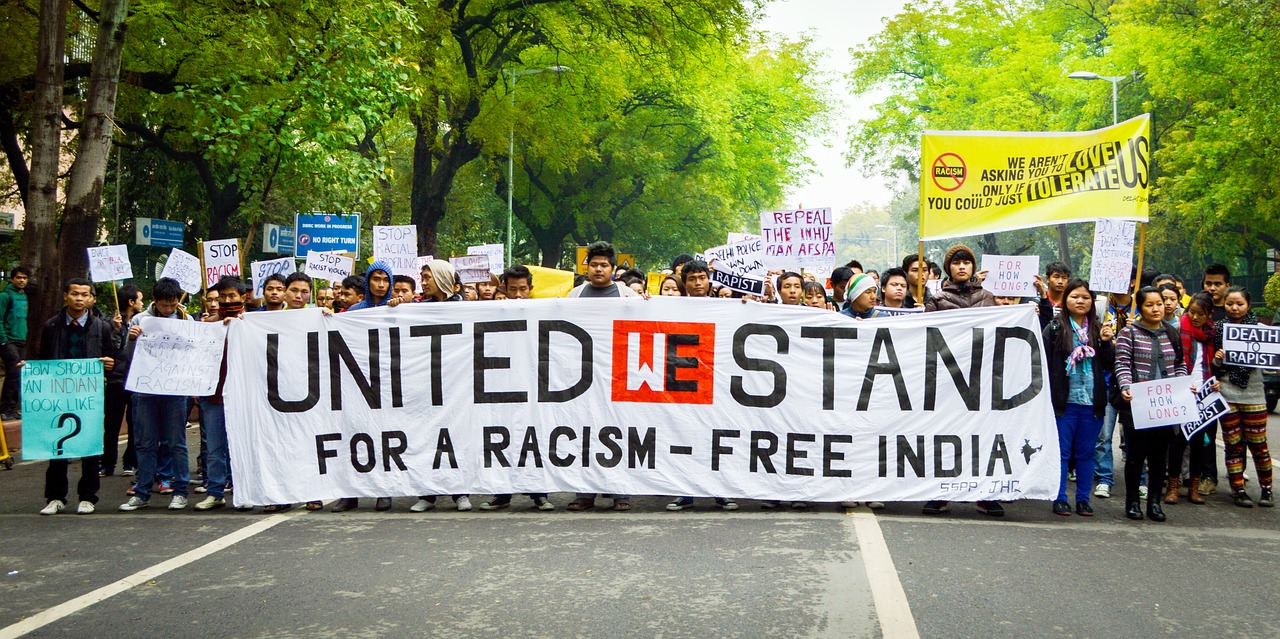It is often said that the opposite of poverty is not wealth but justice. Evidence shows that enabling access to justice has a disproportionate impact on a country’s economic development and on individuals’ quality and standard of living. Without access to legal services, citizens cannot enforce property rights, demand punishment for violence, or ensure adherence to environmental standards. These and other unmet legal needs are linked to adverse impacts on employment, housing, and health. Vulnerable groups are particularly disadvantaged, as a single bad experience with the legal system can push them further into the vicious cycle of poverty and exclusion.
Despite the multiplier effect of a robust legal and justice system, funding for nonprofits working in the space remains abysmally poor in India.
Funders rarely consider investing in access to justice
One reason for the lack of funding is that for someone unfamiliar with the space, the issue could seem mammoth and complex, leaving one with the general impression that it is an unsolvable problem. Another is that even when funders understand the issue in theory, they may believe that it is, fundamentally, the government’s problem to solve. And lastly, even if funders want to support the issue, there are fears that their support will be perceived as political interference or taking a stand against the government, with repercussions to their businesses and lives.

We try and counter each of these below.

Low-cost, grassroots innovations are critical to securing access to justice for everyone, especially vulnerable populations | Picture courtesy: Pixabay
Discussions around the lack of access to justice in India are often centred on dissecting the inefficiencies of the police, prisons, and courts. While it is important to take stock of the problem, when approaching funders, it is worthwhile to focus on the impact that access to justice can have on broader development outcomes.
Access to justice is not a standalone cause, separate from interventions in education, health, or livelihoods, but should be thought of as a tool through which outcomes in each of the above can be achieved. For example, take an underage girl who is being forced to leave school and get married. If she is aware of her rights, has access to sensitive and subsidised legal aid, and is adequately supported by the police and courts to prevent her dropout and subsequent marriage, her chances of completing her education, enjoying better health outcomes (by avoiding a potentially early pregnancy) and securing a job will increase exponentially.
Access to justice is not a standalone cause, separate from interventions in education, health, or livelihoods.
In a survey conducted by Dasra (where we work) and Bain & Company for the India Philanthropy Report 2018, 40 percent of respondents confirmed that areas of personal interest or experience play a pivotal role in selecting a focus area for one’s philanthropy. With this in mind, it is worthwhile to make the connect between access to justice and areas of development that funders are already interested in.
This lens is just as applicable to corporate giving. When decisions to allocate funds under the Corporate Social Responsibility (CSR) mandate are made, cause areas are often linked to business synergies. For example, a pharmaceuticals company might be inclined to fund organisations providing healthcare to vulnerable populations.

However, companies often overlook the biggest business synergy of them all: the fact that a business, any business, is only able to exist and thrive because of the existence of rule of law. Even the World Bank’s Ease of Doing Business Report ranks every country in the world on ten parameters, most of which are linked to a robust regulatory system — ease of obtaining construction permits, enforcing a contract and resolving insolvency.

Related article: It’s time for CSR to invest in justice
The second deterrent to funding for access to justice is the belief that government, and not civil society and philanthropy, must solve the issue. While the government’s role and responsibility remains primary, consequences of the lack of access to justice are too urgent and debilitating for us to wait for the government to mobilise the political will and resources required.
Take for example the education and healthcare sectors, where, historically, the government has enjoyed monopoly in implementing programs. Despite this, due to the size and urgency of the problem, we have seen enormous focus and commitment by social entrepreneurs, philanthropists, and corporates in the past few decades. As civil society and private investment converge to tackle India’s development problems, there is no reason why access to justice should be left behind.
Additionally, research on the issue is unambiguous: government systems alone cannot reach the last mile. Low-cost, grassroots innovations are critical to securing access to justice for everyone, especially vulnerable populations. With government funds aimed at large systems and impact investments focused on market solutions, private philanthropy has a unique role to play in supporting and scaling community-based nonprofits enabling access to justice in India.
There is no doubt that funders are exposed to the threat of political backlash for supporting access to justice initiatives in the country, but it is also true that a problem as deep-rooted and pervasive as the lack of access to justice requires a change in mind set and action. Funders must acknowledge the unique position of power they are in, and use not only their resources but also their networks and influence to build and scale programmes ensuring the rule of law and access to justice in the country.
Justice nonprofits are doubly disadvantaged; not only do they struggle to raise institutional funding, many still find it challenging to raise programmatic funding.
Additionally, if private and corporate philanthropy were to collaboratively fund the sector, this would not only de-risk philanthropic investments but also enable nonprofits to leverage a larger quantum of funds to build and scale.
It is worthwhile to take inspiration from American philanthropy in this regard. In response to growing concern over discriminatory policing and mass incarceration in the country, a number of large funders have come together to support and scale local initiatives in criminal justice reform. This has not only impacted the lives of people in these programmes but also captured public and government attention, leading to policy change at the state and national level.
Related article: Justice for all
Funding access to justice in India
While conversations on philanthropy for access to justice have been in the spotlight only in the past few years, organisations working on the cause have been around for decades. Amongst others in the space, Association for Advocacy and Legal Initiatives (AALI) works to legally empower women and children in Uttar Pradesh and Jharkhand, Aajeevika Bureau uses the law to uplift migrant workers in Rajasthan, Gujarat, and Maharashtra, and the Commonwealth Human Rights Initiative is reforming police and prison systems across India to be more sensitive and accountable to citizens.
These organisations have traditionally been supported by foundations and individual philanthropists from abroad, with little support from domestic funders, individual or corporate. Unfortunately, funding from international foundations in the field of access to justice often runs into compliance troubles and is, in most cases, limited to three to five year cycles.
Access to justice nonprofits are doubly disadvantaged; not only do they struggle to raise institutional funding like the rest of the sector, many are still at a stage where they find it challenging to raise programmatic funding. This prevents them from implementing programmes on a consistent and long-term basis, which impacts their ability to gather data, measure impact, course correct, and achieve scale to a level where the solution may be replicated by other organisations or absorbed by the government.
The way forward
As a signatory to the Sustainable Development Goals (SDGs), India has signed up to provide and improve access to justice for the citizens of our country under SDG 16.3 (Goal 16 is to have peace, justice, and strong institutions). That a platform as global and uniting as the SDGs recognises the need for law and justice is not only a step in the right direction, but also a catalyst for domestic funders to take up the mantle of solving for the issue.

All quotes have been taken from the panel on ‘Investing in Law and Justice’ at the Dasra Philanthropy Week, March 2019.
To learn more about this sector, you can read Dasra’s report Tipping the Scales: Strengthening the Systems for Access to Justice in India.





